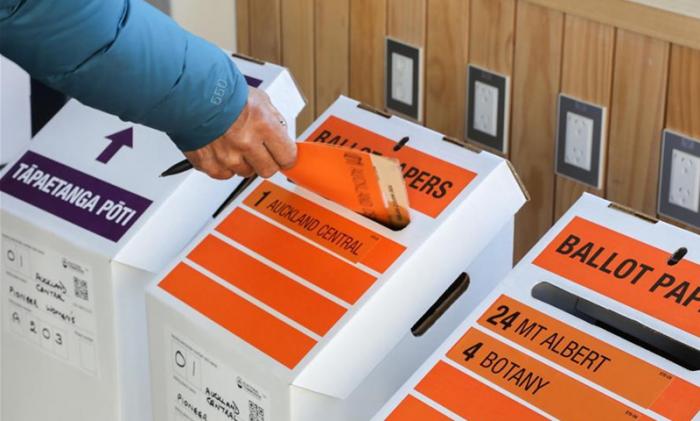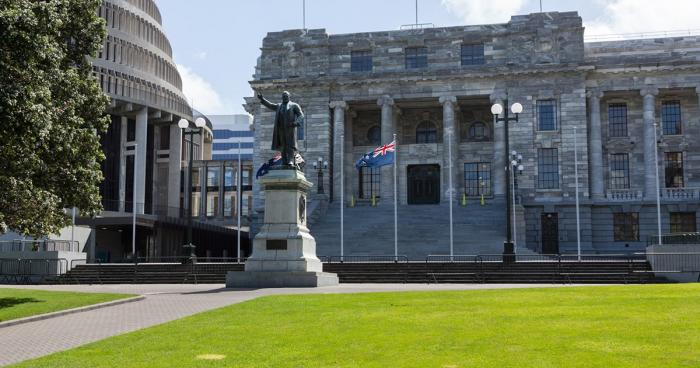New Zealand Elections
New Zealand follows a parliamentary democracy system, and elections are held to determine the composition of the New Zealand Parliament. Heres an overview of the electoral process and major elections in New Zealand: General Elections: General elections in New Zealand are held every three years and are used to elect members to the New Zealand House of Representatives. The House of Representatives consists of 120 members, known as Members of Parliament (MPs), who are elected through a Mixed Member Proportional (MMP) voting system. Voters cast two votes: one for a local electorate candidate and one for a political party. The seats in the House of Representatives are allocated proportionally based on the party vote, with additional seats given to parties that win electorate seats. Local Government Elections: Local government elections in New Zealand are held every three years to elect representatives to local councils. These councils govern specific regions, such as cities, districts, or regions. The voting system for local government elections varies across different areas, but commonly includes a mix of first-past-the-post and single transferable vote systems. Referendums: In addition to general and local government elections, New Zealand occasionally holds referendums on specific issues. A referendum allows citizens to vote directly on a particular question or issue, such as constitutional changes or significant policy decisions. Referendums can be binding or non-binding, depending on the nature of the question.
Election gives all citizens, regardless of wealth, a fair shot to be heard and participate in every step of the democratic process

Upcoming & Fresh Elections
Following is the list of upcoming election(s) in New Zealand that will be held in near future. You may click on the election name to view detail about the election of your choice. You may also post updates and your comments on these elections

Voters have been urged to register
The New Zealand Electoral Commission on Monday urged voters to register as soon as possible to cast their votes in the 2023 general election on October 14. Currently, 89 percent of eligible voters are registered, said Anusha Guler, the election commissioner of the Election Commission. The deputy chief of operations urges those who have not yet signed up to act now, Xinhua news agency reports. New Zealand uses the mixed proportional representation system to elect its parliament. In this system, the government is usually formed by two or more parliamentary political parties. New Zealand citizens or permanent residents aged 18 years or older who have lived in New Zealand for 12 months or more continuously at any time in their lives are eligible to vote. The upcoming election will determine the makeup of New Zealands 54th Parliament. Voters will elect 120 members to New Zealands unicameral House of Representatives under the Mixed Member Proportional Electoral (MMP) system, a proportional representation system in which 72 members are elected from individual voters and 48 members are elected from closed party lists. In the 2020 election, the center-left Labor Party, led by former Prime Minister Jacinda Ardern, won an absolute majority in Parliament. This was the first time that a party under MMP was able to form a government without relying on the support of another party. - Posted on : 06-September-2023

New Zealand Octobers vote
New Zealand is heading for a stalemate in parliament after an election in October, according to opinion polls released on Wednesday that showed support for major parties falling in favor of several smaller parties.
The latest Taxpayers Union - Curia poll expects a center-right bloc made up of the National Party and the ACT Party to win 60 seats, two fewer than the month before. The rival centre-left bloc, which brings together the ruling Labor Party and the Greens, also scored two to 60.
For a majority in the New Zealand House of Representatives with 120 seats, the parties need 61 seats.
Three months after the election, voters are shifting their support from the two major parties to a variety of smaller candidates, polls showed.
Support for the ruling Labor Party fell 1.8 points to 31.1%, while its main rival, the center-right National Party, fell 2.4 points to 33.3%.
A number of smaller parties gained, including the Maori Party, up 1.5 points to 5%, NZ First, up 1.7 points to 3.3%, and Democracy NZ, up 1 point to 1.9%.
About seven months after Prime Minister Chris Hipkins took office following the surprise resignation of Jacinda Ardern, a record number of New Zealanders believe the country is in dire straits.
Polls showed that 64.5% of respondents said the country was moving in the wrong direction, compared to 22.1% who said the opposite.
For the monthly Taxpayers Union - Curia survey, 1,000 voters were polled between 2nd and 10th July. - Posted on : 14-July-2023
Next Elections
The next New Zealand general election will be held after the currently elected 52nd New Zealand Parliament is dissolved or expires. The current Parliament was elected on Saturday, 23 September 2017. The last possible date for the next general election to be held is Saturday, 21 November 2020. - Posted on : 01-October-2019
Electoral system
All New Zealand citizens 18 years or older may vote in general elections, which are conducted by secret ballot. New Zealand was the first self-governing territory to enfranchise women, starting from the 1893 election.
Since the 1996 election, a form of proportional representation called mixed-member proportional (MMP) has been used. Under the MMP system each person has two votes; one is for electoral seats (including some reserved for Maori), and the other is for a party. Since the 2014 election, there have been 71 electorate seats (which includes 7 Maori electorates), and the remaining 49 seats are assigned so that representation in parliament reflects the party vote, although a party has to win one electoral seat or 5 percent of the total party vote before it is eligible for these seats. - Posted on : 28-July-2017
150 years of Hansard
A century-and-a-half ago, a team of independent reporters began writing down everything politicians said in debates at Parliament. They stood for truth and accountability and their work continues to this day. The team and their written record is known as Hansard.
More than just words on a page, Hansard is an account of New Zealand, its politics, society and history. Through it we can track the changes of our nation and see how our priorities and positions have developed or, in some cases, remained the same. Join with us in celebrating Hansard and its role in our democracy. - Posted on : 28-July-2017
Referendum
Action requires knldgewoe, and now I can act! - Posted on : 10-July-2017
Introduction
The New Zealand House of Representatives is a component of the New Zealand Parliament, along with the Sovereign (represented by the Governor-General). The House passes all laws, provides ministers to form a Cabinet, and supervises the work of the Government. It is also responsible for adopting the state's budgets and approving the state's accounts.
The House of Representatives is a democratically elected body whose members are known as Members of Parliament (MPs). There are usually 120 members, though this number can be higher if there is an overhang.MPs are elected for limited terms, holding office until Parliament is dissolved (a maximum of three years). A government is formed from the party or coalition with the majority of MPs. If no majority is possible then a minority government can be formed with a confidence and supply arrangement. - Posted on : 03-July-2017
The NZ flag - your chance to decide
During this year and early 2016, New Zealanders will consider options for our flag's future.
This is the first time in history that all New Zealanders will have a say in the design of the NZ flag. - Posted on : 25-May-2015
Frequently Asked Questions


